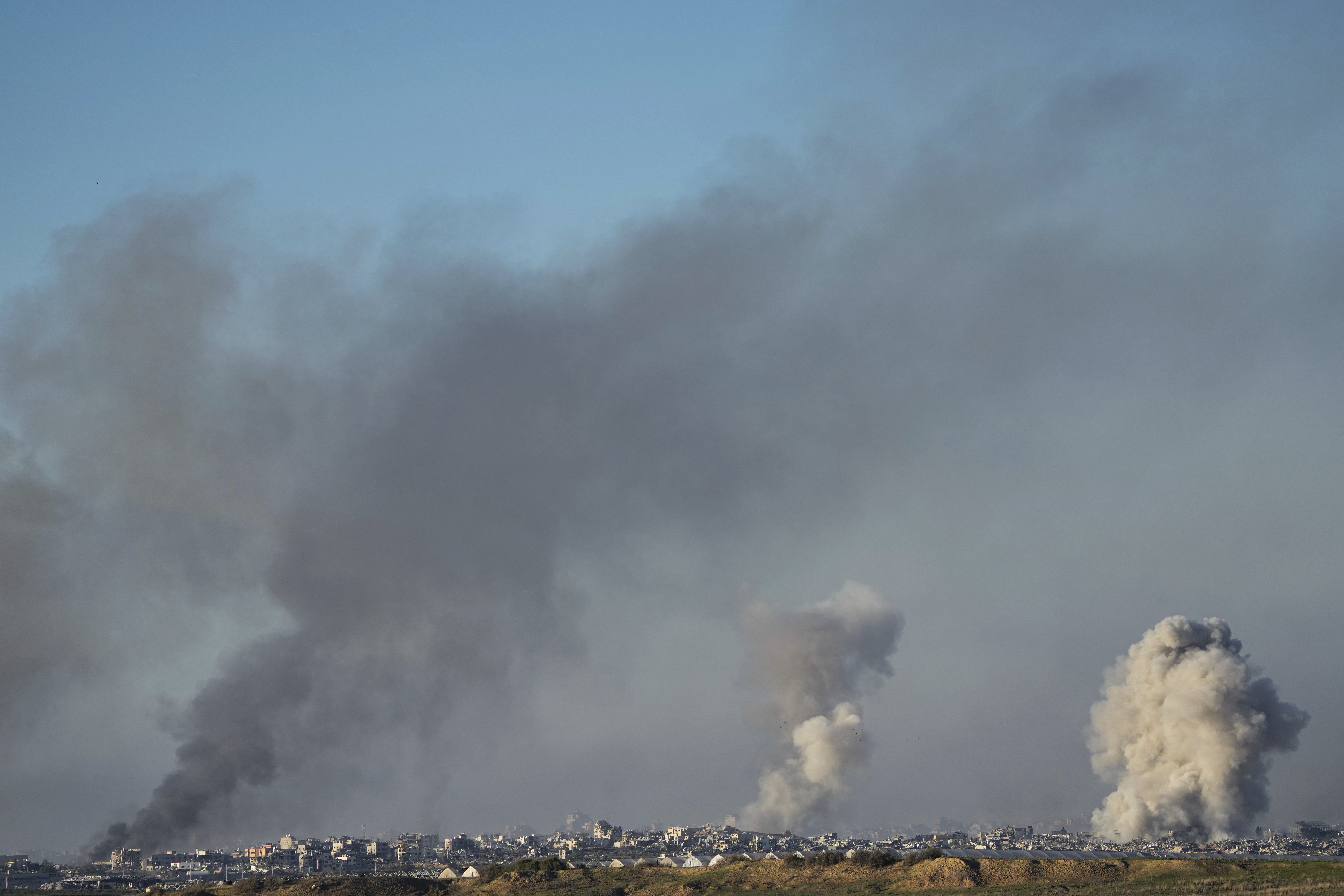3 hostages mistakenly killed by troops had been holding a white flag, Israeli military official says
Anger over the mistaken killings is likely to increase pressure on the Israeli government to renew Qatar-mediated negotiations with Hamas over swapping more captives for Palestinians imprisoned in Israel.


JERUSALEM — Three Israeli hostages who were mistakenly shot by Israeli troops in the Gaza Strip had been waving a white flag and were shirtless when they were killed, an Israeli military official said Saturday.
Anger over the mistaken killings is likely to increase pressure on the Israeli government to renew Qatar-mediated negotiations with Hamas over swapping more captives for Palestinians imprisoned in Israel. Hamas has conditioned further releases on Israel halting its punishing air and ground campaign in Gaza, now in its 11th week.
The account of how the hostages died also raised questions about the conduct of Israeli ground troops. Palestinians on several occasions reported that Israeli soldiers opened fire as civilians tried to flee to safety.
The military official, who spoke on condition of anonymity to brief reporters in line with military regulations, said it was likely that the hostages had been abandoned by their militant captors or had escaped. The soldiers’ behavior was “against our rules of engagement,” the official said, and was being investigated at the highest level.
The three, all young men in their 20s, were killed Friday in the Gaza City area of Shijaiyah, where troops have engaged in fierce fighting with Hamas militants in recent days. They had been among more than 240 people taken hostage during an unprecedented raid by Hamas into Israel on Oct. 7 in which around 1,200 people were killed, mostly civilians. The attack sparked the war.
Hundreds of protesters blocked Tel Aviv’s main highway late Friday in a spontaneous demonstration calling for the hostages’ return. The hostages’ plight has dominated public discourse in Israel since the Oct. 7 attack. Their families have led a powerful public campaign calling on the government to do more to bring them home.
Hadas Kalderon, whose former partner is still held hostage after their two teenage children were released in November, said the Israeli government must pay any price to free all hostages. “To make a deal, now, that’s what I’m saying. Yesterday, not now," said.
The military official said the three hostages had emerged from a building close to Israeli soldiers’ positions. They were waving a white flag and were shirtless, possibly in an effort to signal they posed no threat.
Two were killed immediately, and the third ran back into the building screaming for help in Hebrew. The commander issued an order to cease fire, but another burst of gunfire killed the third man, the official said.
Israeli media gave a more detailed account. The mass circulation daily Yediot Ahronot said Saturday that according to an investigation into the incident, a sniper identified the three hostages as suspects when they emerged from the building, despite them not being armed, and shot two of the three.
Soldiers followed the third when he ran into the building and hid, shouting at him to come out and at least one soldier shot him when he emerged from a staircase, Yediot Ahronot said.
The Israeli newspaper Haaretz gave a similar account based on a preliminary investigation, saying the soldiers who followed the third hostage into the building believed he was a Hamas member trying to pull them into a trap.
Hamas released over 100 hostages for Palestinian prisoners during a brief cease-fire in November. Nearly all those freed on both sides were women and minors. Talks on further swaps broke down, with Hamas seeking the release of more veteran prisoners for female soldiers it is holding.
Israeli political and military leaders often say freeing all the hostages is their top aim in the war alongside destroying Hamas. However, they argue that their release can only be achieved through military pressure on Hamas, a claim that has sharply divided Israeli public opinion.
After negotiations broke down, Hamas said it will only free the remaining hostages, believed to number more than 130, if Israel ends the war and releases all Palestinian prisoners. As of late November, Israel held nearly 7,000 Palestinians accused or convicted of security offenses, including hundreds rounded up since the start of the war.












